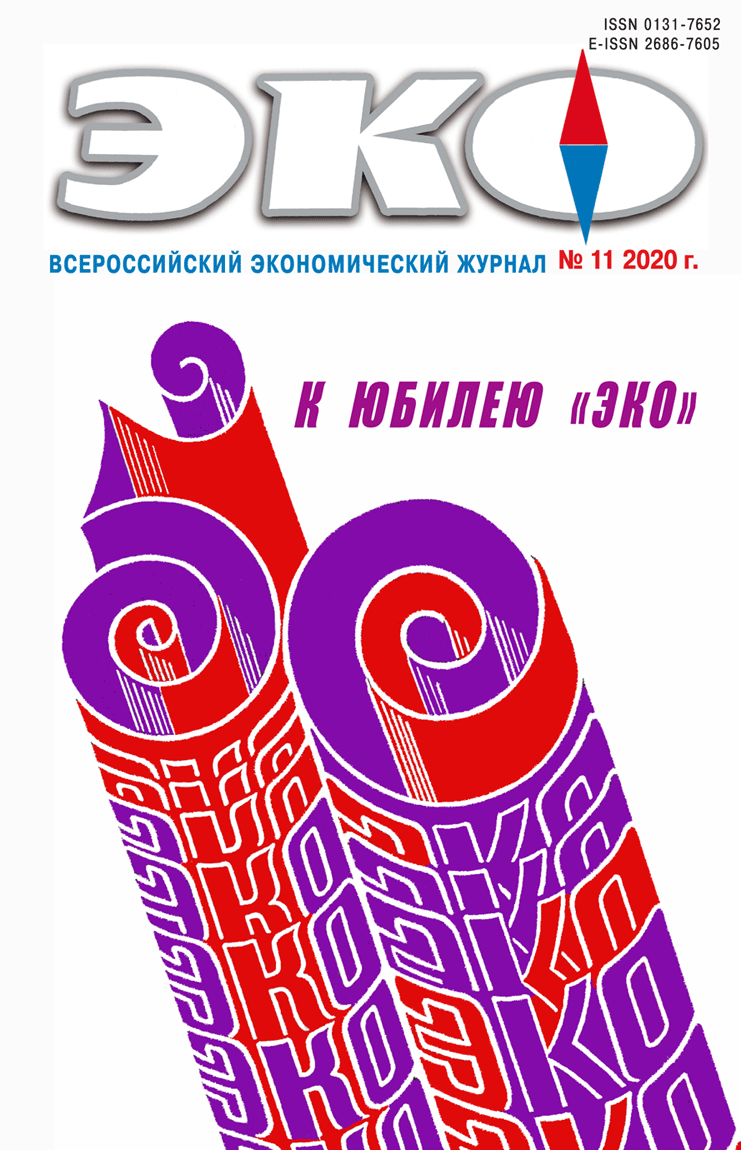FINANCIAL ECONOMY
Published 2020-10-31
Keywords
- public procurement,
- efficiency of public procurement,
- public procurement regulation,
- supplier,
- customer
How to Cite
1.
Yakovlev А, Balaeva О, Rodionova Ю, Tkachenko А. Problems and Efficiency of Public Procurement through the Eyes of their Participants. ECO [Internet]. 2020 Oct. 31 [cited 2025 Jul. 16];50(11):83-103. Available from: https://ecotrends.ru/index.php/eco/article/view/4148
Abstract
This paper examines key problems and assesses effectiveness of the Russian public procurement system. The results of mass survey of customers and suppliers in 2020 testify to conservation of problems accumulated in the public procurement system. In order to ensure the final outcome of the procurement, honest participants have to move into the ‘gray zone’ violating formal rules. The consequence of this is a higher number of violations identified during FAS inspections with subsequent imposition of fines but this does little to improve the situation. In general, the survey results suggest that, despite the importance of fighting corruption and increasing competition, procurement regulation should primarily be aimed at ensuring their ultimate efficiency – in the form of high-quality and timely execution of contracts, taking into account the interests and requests of main participants of the public procurement process.References
- Авдашева С. Б., Яковлев А. А., Головщинский К. И. и др. Регламентированные закупки в России: как повысить стимулирующую роль расходов бюджетов и регулируемых компаний. М.: Издательский дом НИУ ВШЭ, 2020.
- Балаева О. Н., Яковлев А. А., Родионова Ю. Д., Есаулов Д. М. Трансакционные издержки в сфере госзакупок РФ: оценка на макроуровне на основе микроданных // Журнал институциональных исследований. 2018. № 3. С. 58–84.
- Валиева О. В. Институциональная ловушка в российском здравоохранении: к вопросу о госзакупках// ЭКО. 2020. № 3. С. 44–60. DOI: 10.30680/ЕСО0131–7652–2020–3–44–60.
- Вольчик В. В., Нечаев А. Д. Трансакционный анализ сферы государственных закупок. Монография. Ростов н/Д: Изд-во «Содействие – ХХI век, 2015.
- Малкина М. Ю., Виноградова А. В. Как российские институты влияют на эффективность госзаказа // ЭКО. 2020. № 3. С. 8–29.DOI:10.30680/ЕСО0131–7652–2020–3–8–29
- Мельников В. Становление системы правительственных закупок России на рыночных принципах // Terra economicus. 2016. T. 14. № 4. С. 54–72.
- Мельников В., Литвинцева Г. Как и почему растут издержки при госзакупках в РФ // ЭКО. 2020. № 3. С. 30–43. DOI:10.30680/ЕСО0131–7652–2020–3–30–43
- Счетная палата. Отчет о результатах экспертно-аналитического мероприятия «Мониторинг развития системы государственных и корпоративных закупок в Российской Федерации за 2019 год», 2020.
- ЦПУР (Центр перспективных управленческих решений). Аналитическая записка “Система государственных закупок в России: конкуренция против качества?”, 2019.
- Яковлев А. А., Ткаченко А. В., Балаева О. Н., Родионова Ю. Д. Российская система госзакупок: закон меняется, проблемы остаются // ЭКО. 2018. № 9. С. 17–38. DOI:10.30680/ЕСО0131–7652–2018–9–85–107
- Dávid-Barrett E., Fazekas M. Anti-corruption in aid-funded procurement: Is corruption reduced or merely displaced?. World Development. 2020. Vol. 132. Article 105000.
- Di Tella R., Schargrodsky E. The role of wages and auditing during a crackdown on corruption in the city of Buenos Aires // Journal of Law and Economics. 2003. Vol. 46. No. 1. Pp. 269–292.
- Fazekas M., Kocsis G. Uncovering high-level corruption: cross-national objective corruption risk indicators using public procurement data // British Journal of Political Science. 2017. Vol. 50. No. 1. Pp. 1–10.
- Flynn A., Re-thinking SME disadvantage in public procurement // Journal of Small Business and Enterprise Development. 2017. Vol. 24 Issue: 4. P. 991–1008.
- Grega M., Orviska M., Nemec J., Lawson C. Factors determining the efficiency of Slovak public procurement // NISPAcee Journal of Public Administration and Policy. 2019. Vol. 12. No. 1. Pp. 43–68.
- Kacandolli-Gjonbalaj D., Shiroka-Pula J., Berisha-Shaqiri A., Osmani M. The Efficiency of Public Procurement in the Republic of Kosovo: An Econometric Approach // Ekonomika (Economics). 2018. Vol. 97. No. 2. Pp. 70–90.
- PwC. Public procurement in Europe: cost and effectiveness. PricewaterhouseCoopers. A study on procurement regulation prepared for the European Commission, 2011.

